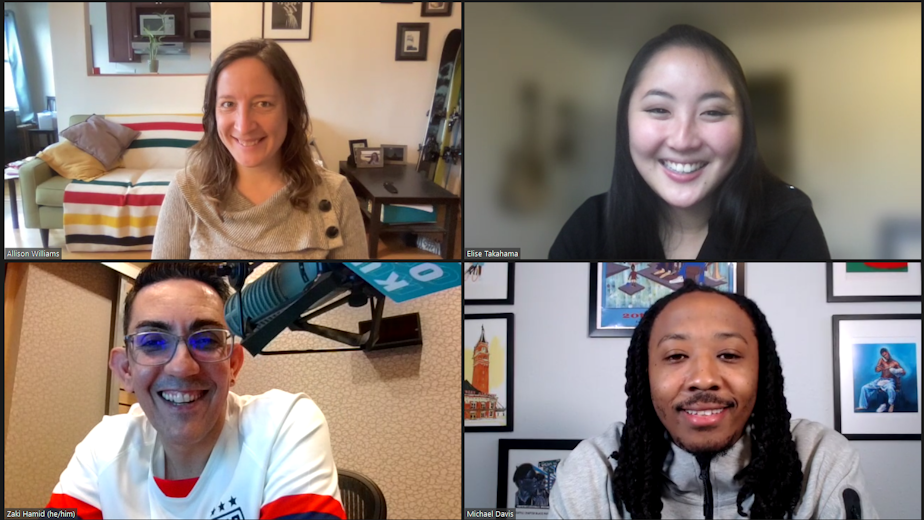Week in Review: wildfire smoke, Covid, and media blackouts

Guest host Zaki Hamid discusses the week’s news with KUOW’s arts and culture reporter Mike Davis, Elise Takahama of The Seattle Times, Seattle Met’s Allison Williams, and
We saw a fire season extend into October this year. Why is it this a problem so late in the year? Seattle had the worst air quality in the world this week. What is climate change’s role in this? Is this the new normal? How should we change our thinking about fires in Western Washington? How do we prepare (both individually and systemically)? The Bolt Creek Fire still isn’t extinguished. Why? Related, there are now suspects in the Nakia Creek fire. As fires are becoming more and more destructive and fire bans are widely publicized, what is the correct punishment for people who start fires?
Experts are saying to prepare for the potential of a COVID surge this fall and winter. What makes this potential surge different than any other surges? Meanwhile, booster rates remain low, but perhaps not entirely due to a lack of effort. What is the reason for the low rate? Why are people having a hard time finding appointments for a booster if so few people are getting it? Is it easier to get an appointment outside of Seattle?
UW Medicine nurses ratified a new contract (with big raises), a few weeks after some other big raise news from Providence Swedish and Seattle Children’s. Why have hospital systems agreed to big contracts despite many of them having financial struggles? Has it become impossible to ignore health care worker burnout?
Dan Strauss, the city councilmember for Ballard and Greenwood, attempted a media blackout of a public meeting on Monday night. He later apologized for it. What was his reasoning for this? Why is a media blackout such a big deal?
There was a rumor about a serial killer in Seattle this week, and Seattle Met reporter Ben Cassidy talked to a misinformation researcher about how and why these rumors spread. How do these things happen? How do they spread? How did people react? What consequences are there? How do we avoid this happening?


